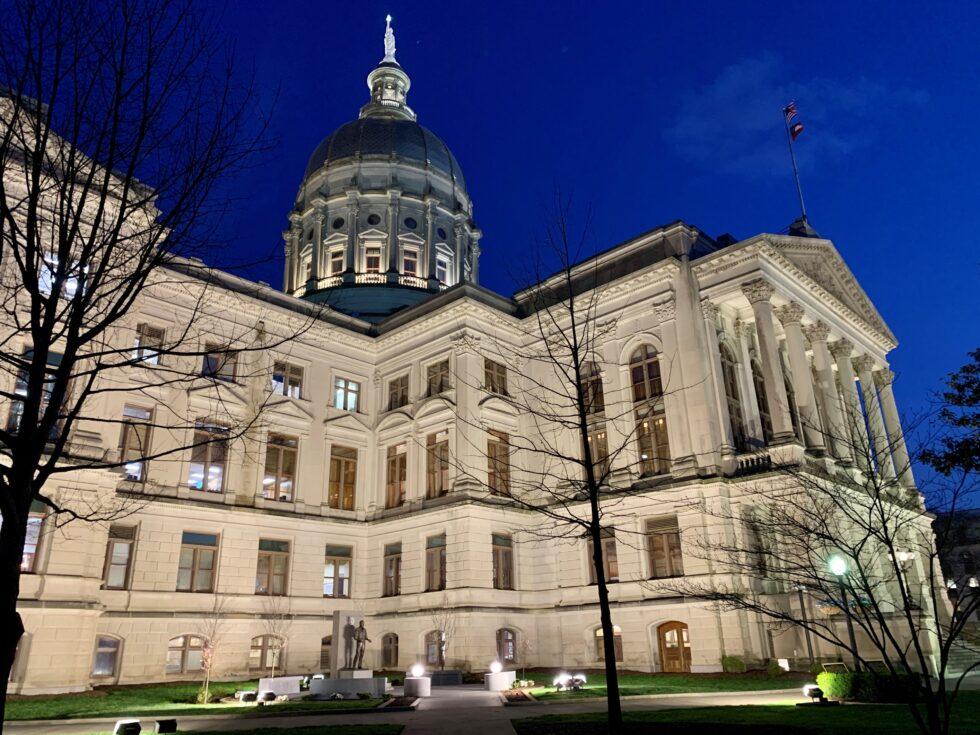
Section Branding
Header Content
Lawmakers: Several controversial bills get final passage on Sine Die. But not all
Primary Content

The Georgia Legislature gave final passage to several controversial bills on the last day of the legislative session — but not all. Here's a roundup.
The budget
Both chambers passed the Fiscal Year 2024 State Budget. The budget is the only legislation that Lawmakers are constitutionally mandated to pass.
The version of the $32.4 billion budget that both chambers passed featured increased funding for mental health services, foster children and salaries for law enforcement. It made cuts in other areas.
The budget allocates $117 million to the Department for Behavioral Health and Developmental Disabilities (DBHDD) for developmental disorders and mental health treatment. It also increased funds to address hoteling foster children. Hoteling is the process where high-needs foster children are placed in hotels if there is no foster home available.
The budget made space for a $4,000 or $6,000 raise for some law enforcement and a salary increase for teachers and custodians. The budget restored HOPE Scholarship to cover 100% of tuition costs at public Georgia colleges.
Budgets for higher education were reduced overall, but the Board of Regents can decide where those cuts apply.
The budget also cut Georgia Public Broadcasting's state funding by about 10%.
House Appropriations Chair Rep. Matt Hatchett (R-Dublin) thanked the late Speaker David Ralston while presenting the budget. He said Ralston was like a father to him.
"I want to thank him are giving me the opportunity and teaching me how to persevere. because that's what we've all done in this session," Hatchett said while wearing one of Ralston's ties gifted to him by Ralston's widow.
Bail
Senate Bill 63, which expands the list of bail-restricted offenses in Georgia passed out of the House after a passionate debate.
The bill was amended, so it needed final approval from the Senate as well. The Senate insisted on its version of the bill and a conference committee was appointed, meaning it will have to wait for next session for passage.
Gangs
SB 44 passed out of the Senate for a second time after a House amendment. The bill aimed to crack down on gang recruitment of minors by increasing the mandatory minimum sentence for the crime.
The House amendment prevents those charged with gang recruitment from being released from jail without paying bail if they have had a bench warrant issued in the last five years. Bench warrants are issued when someone fails to appear in court on their scheduled date.
Democrats opposed the bill with the House amendment.
Elections
The controversial elections bill SB 222 won final approval from the Senate. The bill bans outside donations to elections boards. Republicans say it will prevent partisan interference in elections boards, but Democrats said that it will hurt underfunded and overburdened elections offices.
The bill passed the Senate 32 to 21 and now heads to Gov. Brian Kemp's desk.
Schools
A bill to create a grant for public school students to use to go to private school, charter, school, or be homeschooled was stalled the House.
Supporters of SB 233 said it allows families to customize education to best fit their children's needs.
"Ultimately we should put the child at the center of every decision we make," Rep. Todd Jones (R-South Forsyth) said.
The bill would allow students at the bottom 25% of public schools to access a $6,500 grant for other educational options. Critics of the bill argued that a $6,500 grant is not enough to cover most private school tuitions. They also said that it may not benefit students living in rural areas where there is not a private school or charter school nearby.
"What makes us think that poor and disadvantaged families are going to be able to take advantage of this?" Rep. Mary Frances Williams (D-Marietta) said. "It's okay if you don't care about that. But don't pretend that it will benefit them. And don't pretend that it won't cost a lot of money."
The bill failed, and then was reconsidered.
Cannabis
A bill to overhaul Georgia's medical cannabis licensing system fizzled in the Senate. A House amendment to HB 196 would allow Georgia's Agriculture Commissioner to oversee cannabis licenses and mediate disputes. The Senate disagreed on the amendment, and the bill was not heard in the House before the end of the day.
The 2023 legislative session is the first of a biennial, so bills that did not pass this year may be brought back in 2024 for a second chance.

